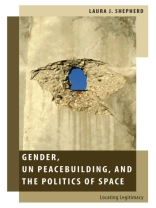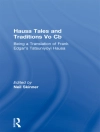The United Nations Peacebuilding Commission (UNPBC) was established in December 2005 to develop outlines of best practice in post-conflict reconstruction, and to secure the political and material resources necessary to assist states in transition from conflict to peacetime. Currently, the organization is involved in reconstruction and peacebuilding activities in six countries. Yet, a 2010 review by permanent representatives to the United Nations found that the hopes of the UN peacebuilding architecture "despite committed and dedicated efforts…ha[d] yet to be realized." Two of these hopes relate to gender and power, specifically that peacebuilding efforts integrate a "gender perspective" and that the Commission consult with civil society, NGOs, and women’s organizations. This book is the first to offer an extensive and dedicated analysis of the activities of the UN Peacebuilding Commission with regard to both gender politics, broadly conceived, and the gendered dynamics of civil society participation in peacebuilding activities. Laura J. Shepherd draws upon original fieldwork that she conducted at the UN to argue that the gendered and spatial politics of peacebuilding not only feminizes civil society organizations, but also perpetuates hierarchies that privilege the international over the domestic realms. The book argues that the dominant representations of women, gender, and civil society in UN peacebuilding discourse produce spatial hierarchies that paradoxically undermine the contemporary emphasis on "bottom-up" governance of peacebuilding activities.
Laura J. Shepherd
Gender, UN Peacebuilding, and the Politics of Space [PDF ebook]
Locating Legitimacy
Gender, UN Peacebuilding, and the Politics of Space [PDF ebook]
Locating Legitimacy
购买此电子书可免费获赠一本!
语言 英语 ● 格式 PDF ● 网页 224 ● ISBN 9780199982738 ● 出版者 Oxford University Press ● 发布时间 2017 ● 下载 3 时 ● 货币 EUR ● ID 8543840 ● 复制保护 Adobe DRM
需要具备DRM功能的电子书阅读器












